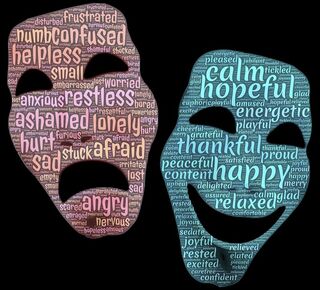Memory
Is a Negative Memory Causing Distress? Try This Easy Cure
New research provides a simple way to reduce distress from unpleasant memories.
Posted March 23, 2021 Reviewed by Jessica Schrader

The Problem
Imagine that you are being haunted by a distressing personal memory. Despite your best efforts, you can’t seem to shake it. What would work best to take the sting out of this bad memory—thinking of a time when you were happy or recalling a time when you felt competent?
That was the question that a group of researchers tried to answer in a small study of students at the University of Zurich. Such a study could have practical applications for anyone who is saddened, angered, frightened, or distracted by an unpleasant memory—a common, and probably a universal, experience. Although the study did not focus on traumatic memories, the answer could reduce the suffering of those with persistent negative memories.
The Prediction and Procedure
The researchers predicted that a self-efficacy memory—that is, a memory about successfully coping with a problem situation or achieving a valued goal—would work best to take the edge off a difficult memory. That was because past research had shown success with this technique in a variety of populations. “Self-efficacy” is an important concept in psychology; people who believe they have the power to influence events that affect their lives are more likely to be persistent, determined, optimistic, and take more initiative in situations. But would a brief self-efficacy intervention work to make negative memories less painful?
To find out, 75 university students were recruited by the researchers via a telephone screening interview. In this one-on-one interview, they were asked to recall a personal negative memory that was currently mildly to moderately distressing (but not traumatic), such as arguments with significant others or the illness of a loved one. Participants were also asked to rate their level of distress (on a 1 to 7 scale), along with their perceptions of the event, and to report certain physical reactions such as heart palpitations.
The students were then sorted randomly into three groups. One group had no intervention. The individuals in the second group--the positive memory group--were asked to recall a happy memory, such as a positive encounter with a friend or relative or a recent experience in a natural setting. The members of the third group—the self-efficacy group—were asked to recall a time when they dealt successfully with a difficult situation, achieved a goal, or excelled at academics or sports.
Eight days later the students were re-evaluated in individual sessions to see if the interventions had reduced distress.
The Results
Those in the self-efficacy group outperformed the positive memory group on key outcomes, as predicted by the researchers. A major outcome was decreased distress associated with their negative memory. The researchers speculated that the self-efficacy memory might have helped participants recall positive coping strategies and use them. Or, recalling memories of their past successes and competent behaviors could have helped put the negative memory in a broader context and reduced its importance to the participants.
In contrast to the researchers’ hypothesis, however, the positive memory group also showed benefits from the intervention, though the results were weaker. There was some reduction in distress, as well as in feelings of helplessness. The researchers theorized that recalling positive memories might have led to a mood lift which itself could increase feelings of self-efficacy. The researchers also speculated that happy memories might have led to “sadness repair.”
As for the group with no intervention, there was no change in the distress level of their memories.
While this study was small and focused only on college students, it is fascinating that feelings of self-efficacy that arise from a memory of effective coping skills tends to “cure” unhappy memories more than happy memories themselves do. It’s also amazing that a single intervention could be so effective in transforming negative memories. Whether further studies bear out these results will be interesting to discover.
The Possible Reason
Why was such a brief intervention so effective? A possible answer is that recalling a memory of one’s self-efficacy led to a reappraisal of the negative memory. “Cognitive reappraisal” is a powerful tool in psychology. Also known as “reframing,” “cognitive reappraisal” refers to the skill of looking at a situation in different ways, often to find the hidden positives. For example, a “problem” can be reframed as a “challenge.” Unlocking autobiographical memories of competence helped the study participants put the disturbing memory in a broader context and to see themselves in a more realistic and positive light.
To sum up the results in the researchers’ words: “These findings suggest that recalling self-efficacy episodes may promote adaptive self-appraisals for negative memories, which in turn may contribute to recovery from stressful events and, with further research, may prove to be a useful adjunctive strategy for treatments such as CBT (Cognitive Behavior Therapy).”
The Potential
This new study offers hope that a person’s sense of self-efficacy could be enhanced using relatively simple interventions like the autobiographical self-efficacy memory described in this blog. School counselors at all levels could introduce this technique both to small groups and large classes, as well as to individuals in therapy. In addition to helping individuals with "sticky" negative memories, the technique could be taught in on-going community mental health programs.
To use the self-efficacy memory technique successfully, you need to be able to recall your recent successes. If you have difficulty recalling times when you felt self-confident or successful, build a mental portfolio of success experiences using the small-steps technique, described in detail here. The basics: At the end of the day, write down or recall three situations that you handled well that day. In the future, use your “bank” of self-efficacy memories to put a nagging negative memory in a more realistic context.
Whether a happy memory or a self-efficacy memory can help a particular person reframe a negative memory might be an individual matter. It would take just a small investment of time to try each one and see what works for you.
One lesson: Your own memories of times when you overcame challenges, handled situations well, or succeeded in goals may be an effective tool for reducing distress over setbacks or losses. It is impressive that our memories can provide us with such useful coping tools. Our minds are more powerful than we may know!
© Meg Selig, 2021. All rights reserved.
Many thanks to Dr. Birgit Kleim for sending a copy of this fascinating study.
References
Christina Paersch, Ava Schulz, Frank H. Wilhelm, Adam D. Brown, Birgit Kleim. Recalling autobiographical self-efficacy episodes boosts reappraisal-effects on negative emotional memories. Emotion, 2021. DOI: 10.1037/emo0000949
Reflecting on your own capabilities boosts resilience. ScienceDaily. Retrieved March 22, 2021 from www.sciencedaily.com/releases/2021/03/210310122450.htm



